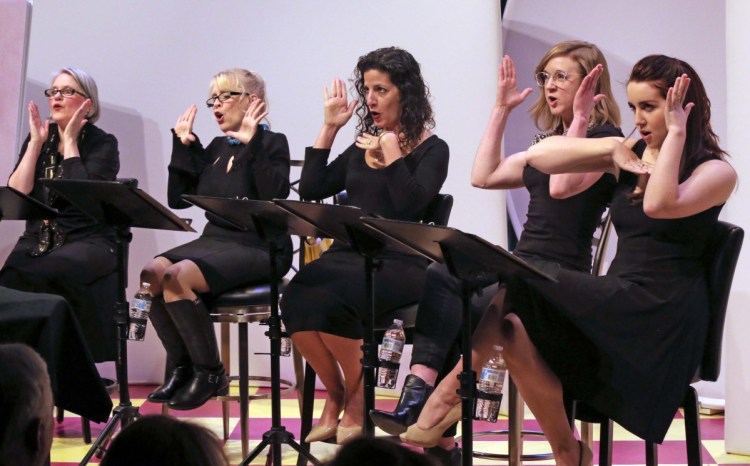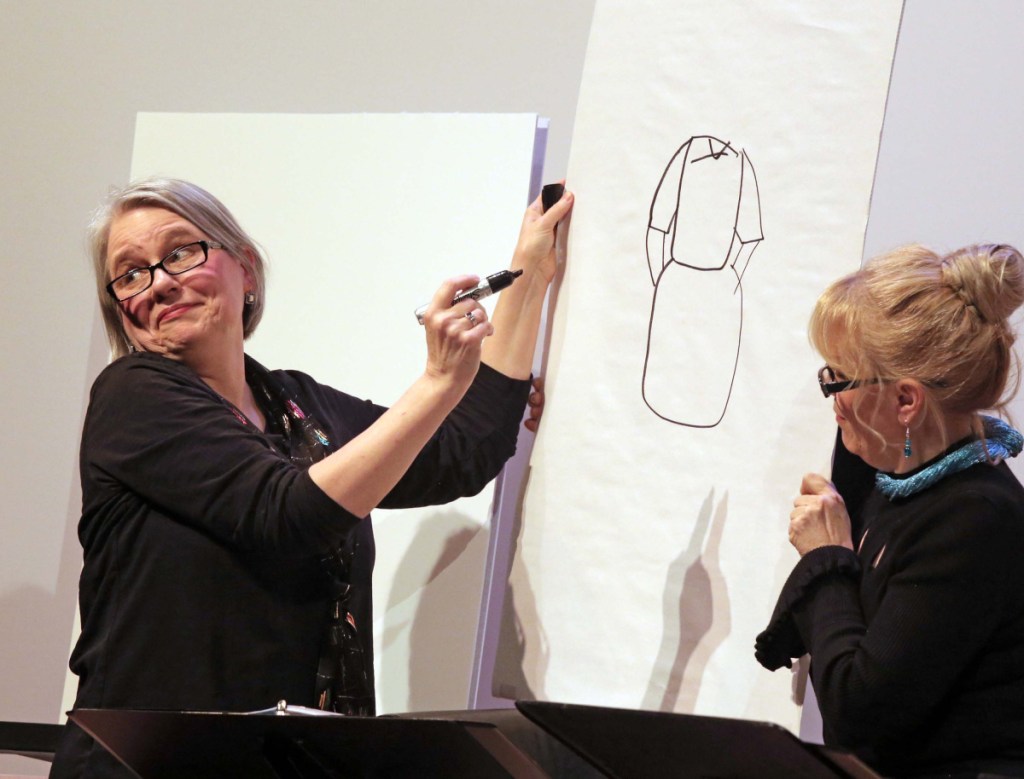“Love, Loss and What I Wore,” on stage through March 6 at Good Theater, is a series of vignettes about the female experience, seen through the gauzy screen of a woman’s wardrobe. The show, based on a book by Ilene Beckerman and written for the stage by Nora and Delia Ephron, is at once timely and, at this point in the American 21st century, a little off-kilter.
Members of the cast – a group of talented local actors who will be recognizable to Portland audiences – play characters of various ages who take turns describing formative moments in their lives. In vivid detail, with aplomb and great comic timing, they describe the dresses, shoes and accessories that sometimes foiled them, sometimes failed them and sometimes just made key moments that much more memorable.
This is mostly a comedy, and a quite enjoyable one, although these lives are fraught with challenges, too, sometimes desperate ones. The women struggle with failed marriages, rape, cancer and death – and grow into and out of styles as they work, stumbling along as people do, to figure out who they are.
“I’ve never really known for sure which of those two people I am, the girl who almost doesn’t get asked to prom at all or the girl who gets to go with a really cute guy,” says one, describing the powder blue and white dress that, mortifyingly, matched her prom date’s tuxedo. “Every time I thought I knew which one I was, I turned out to be the other. Which is one reason why I think I got married, to end the confusion.”
It’s a promising tableau for the moment we’re in now, an extraordinary cultural transformation that seems apparent in all corners of American society these days, fueled by the #MeToo movement that burst forth in recent months in the wake of revelations of Hollywood mogul Harvey Weinstein’s predatory behavior. The audience appreciated it immensely: Many women nodded knowingly about even some obscure items (blow-up bras), and the jokes and wry observations landed each time.
But the show, first produced in 2008 off-Broadway, also feels constricted in an American culture that even in the last decade has expanded its appreciation of what “the universal female experience” is. The Ephron-Beckerman interpretation depends on the commonalities among white, educated, middle-class baby boomers. It’s a limited view, caught in amber. It’s not just that younger women are less likely to shop at department stores – where it seems the characters got most of their footwear and apparel – but also that they may not assume, as this show does, that having small breasts is any kind of obvious physical flaw in need of correction.
“Love, Loss and What I Wore,” essentially, is dependent on nostalgia. That can be pleasing, like a favorite cozy old sweater stolen years ago from the high school boyfriend who, thank goodness, you didn’t marry. Plus, perfect for mid-winter in Maine, it’s funny.
Daphne Howland is a freelance writer based in Portland.
Send questions/comments to the editors.




Comments are no longer available on this story